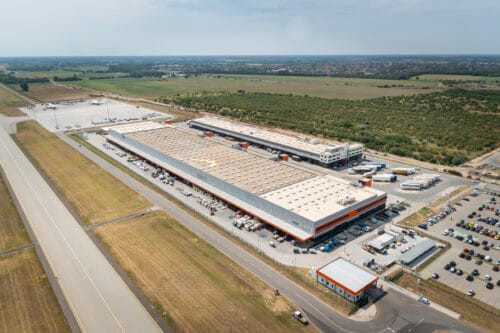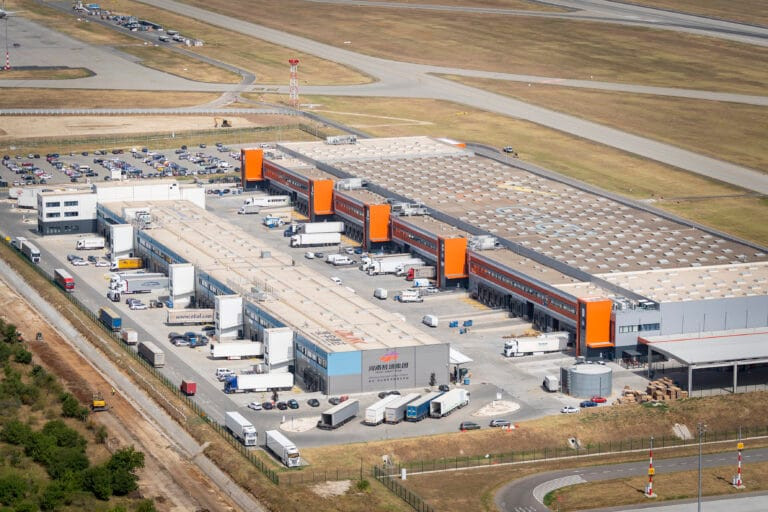Infrastructure development, cargo network expansion and operational excellence driven by global best practices are the key indicators of Budapest Airport’s continued growth, positioning it as a leading air freight hub in Central and Eastern Europe. Budapest Airport, part of the VINCI Airports network, recorded an impressive 48.8 percent growth in 2024, with a similar upward trend continuing into early 2025, handling 341,000 tons of air cargo between May 2024 and April 2025.
The capacity upgrade has been complemented by a strategic focus on optimising the existing cargo facilities. Powered by VINCI Airports, the airport is leveraging international best practices to further enhance operational efficiency.
Originally launched in 2020, the BUD Cargo City was expanded in 2023, increasing its annual handling capacity to 300,000 tons. In cooperation with the cargo community, Budapest Airport initiated targeted capacity enhancement measures in 2024. As a result, the airport’s cargo capacity has grown to 420,000 tons within a relatively short timeframe.
Budapest Airport’s freighter connectivity is among the most robust in the region. Major partners include Cargolux, offering connections to Hong Kong and Luxembourg—an essential hub for North American and global traffic. Turkish Cargo links Budapest Airport to its global network via Istanbul, while Qatar Airways Cargo connects the airport to Doha, providing smooth access to markets across Asia, Africa and the Americas.
China remains a dominant force in global trade, and Budapest Airport plays a vital role in this dynamic. Daily flights from Sichuan Airlines are complemented by regular services from China Cargo Airlines, Air China Cargo, SF Airlines and Hong Kong Airlines, ensuring the seamless handling of both e-commerce and general cargo flows. This is further supported by flexible charter operations from carriers such as FlyMeta, Longhao Airlines, Ethiopian Cargo, MyFreighter, Georgian Airways and Atlas Air. The recent launch of Hungary Airlines has added dedicated freighter capacity to China, offering highly competitive export solutions. The airport now supports over 80 dedicated freighter flights each week, making it one of the region’s top choices for air cargo connectivity.

The belly cargo segment has also seen strong growth. Emirates and Korean Air offer widebody belly cargo capacity to Dubai and Seoul, respectively. In parallel, Hainan Airlines (Shenzhen), Shanghai Airlines (Shanghai, Ningbo), Air China (Beijing) and China Southern (Guangzhou) supplement freighter services with significant lower-deck capacity.
In November 2024, Ferenc Liszt International Airport won the European Cargo Airport of the Year award in Singapore, at the Payload Asia Awards. This recognition reflects the strength of Budapest Airport’s comprehensive air cargo network, which offers unmatched connectivity to Asia, the Middle East, the Americas and beyond.





